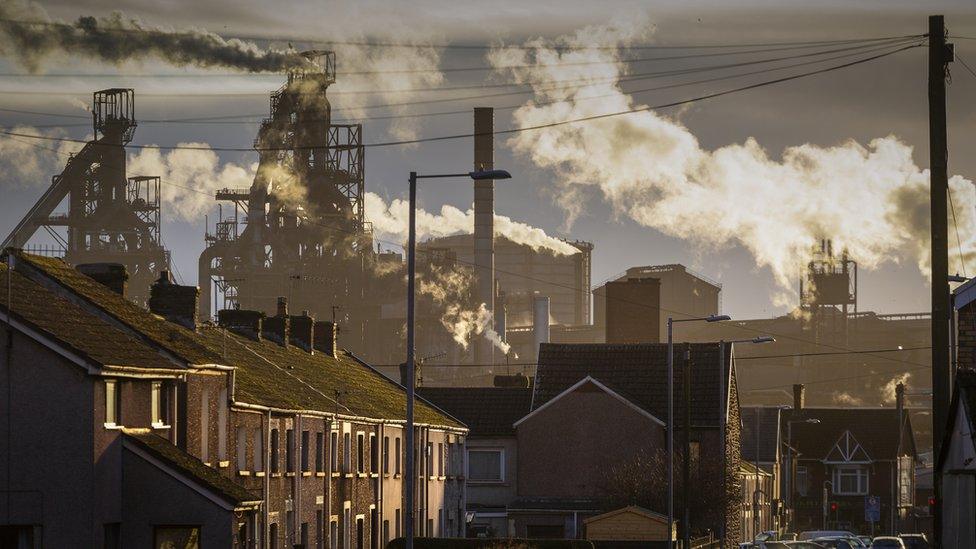Tata: Unite protest over treatment of Port Talbot steelworkers
- Published
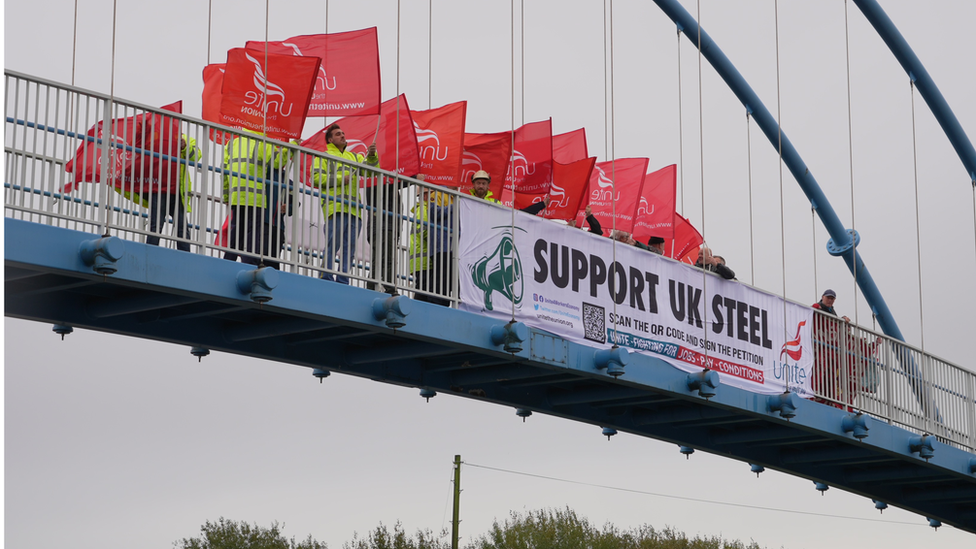
Steelworkers say that the handling of the workforce by Tata Steel has been "shambolic"
Workers have criticised Tata Steel for its "shambolic" treatment of staff at the UK's largest steelworks.
About 25 union members protested near the Port Talbot plant after the company briefed unions that up to 3,000 jobs could go in months.
Ian Williams from the Unite union said Tata had "no respect" for workers.
Tata Steel, a Indian multinational firm, said it made "every effort" to share updates with employees first.
On Thursday evening hundreds of staff attended a meeting held by their unions at the Tata Sports and Social Club, close to the steelworks, as their shifts ended.
Unions claimed on Wednesday that Tata Steel had informed them of plans to end blast furnace production at the Port Talbot plant - which employs 4,000 people - by March 2024.
It had been expected that Tata would publicly confirm the plans following a board meeting in Mumbai on Wednesday, but its announcement was cancelled.
It comes after the UK government promised £500m to keep open the Port Talbot site, which was opened in 1951 and once employed nearly 20,000 people in its heyday.
Tata, which employs 8,000 people across the UK, said on Wednesday evening that it was "not in a position to make a formal announcement about any proposals for a transition to a decarbonised future for Tata Steel UK."
The company added that it hoped to begin a formal consultation with workers "soon".
"I think the whole way it has been handled is shambolic," said Ian Williams, Unite's representative at the steelworks.
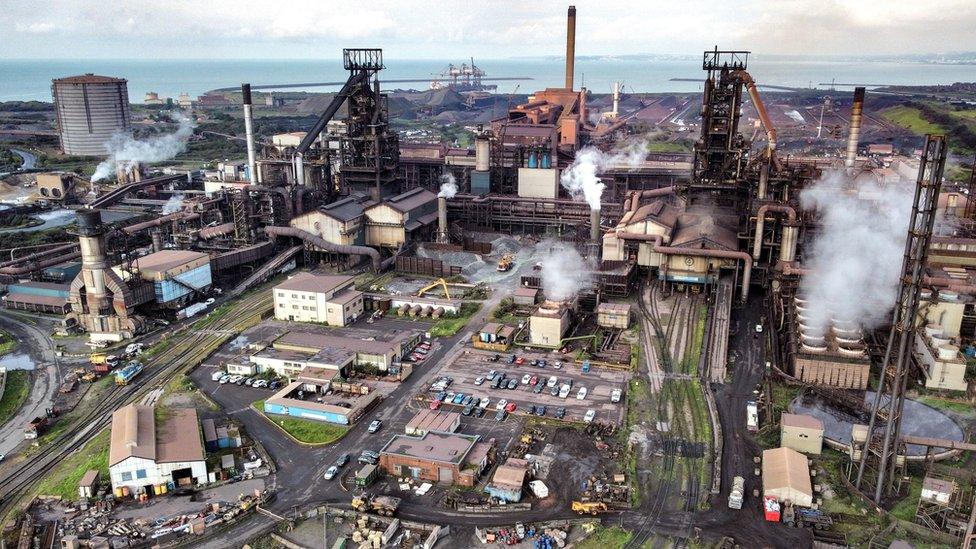
Port Talbot steelworks employs 4,000 of Tata's 8,000 workforce
"Tata uses their values of integrity, honesty, trust. There was none of that yesterday, [with] the way the workforce are being treated in there."
Mr Williams said concerns not only surrounded the 3,000 jobs at risk, but the wider impact on the town that has grown up around the steelworks.
"This is 10,000-plus jobs because you've got all the communities, the families, the contractors, and the way they've done this is just they've got no respect at all for their workforce."
It was claimed Tata Steel would have closed its Port Talbot plant and pulled out of the UK if the government had not committed £500m towards Tata's £1.25bn plan to decarbonise its operations.

Unite representative Ian Williams says the treatment of workers opposes the values Tata says it promotes
Welsh secretary David TC Davies said UK ministers agreed £500m for a new furnace and to secure 5,000 out of 8,000 jobs, of which 4,000 are based at the Port Talbot plant - one of the biggest polluters in the UK
They will be replaced with greener arc furnaces, which are expected to be operational within three years of getting regulatory and planning approval.
Stephen Kinnock, MP for Aberavon, said workers and their families had "once again suffered huge anxiety as their futures and livelihoods were thrown into a black hole".
"Yesterday's fiasco demonstrates that Tata must now engage with the unions and fundamentally re-think their proposals so that a new approach can be agreed," he said.
A Tata Steel spokesperson said: "Whenever we have a significant announcement to share, we make every effort to inform our employees and their representatives first."


Everyone recognises that if it's to have a viable future, the Port Talbot plant has to reduce its carbon emissions.
Tata Steel have committed to hit net zero by 2045 and the UK and Welsh governments want to achieve that by 2050.
But it's important to consider the wider financial context in which the decarbonisation plans are being drawn up.
Tata Steel have previously said that the plant is losing a million pounds a day and figures released yesterday showed continued losses for its UK operations.
It's not a stretch of the imagination to think that the company's attitude to keeping the existing blast furnaces running might be different if the plant was profitable.
However, their statement on Wednesday does say they will "carefully consider any proposals put forward" - this sounds like a nod towards a forthcoming report commissioned by the unions which looks at alternatives to having just a single electric arc furnace operating at the plant in the future.
That report is expected in the next couple of weeks.
- Published1 November 2023
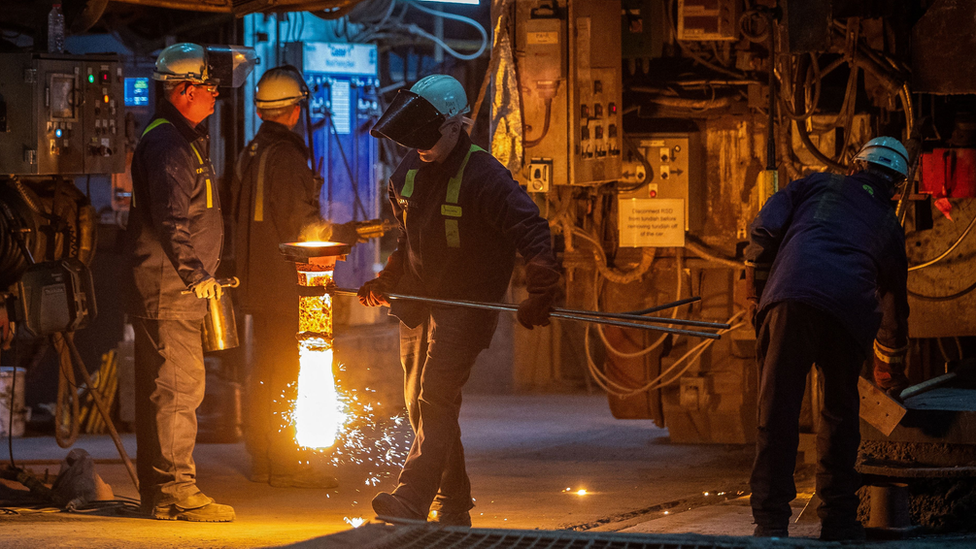
- Published17 September 2023
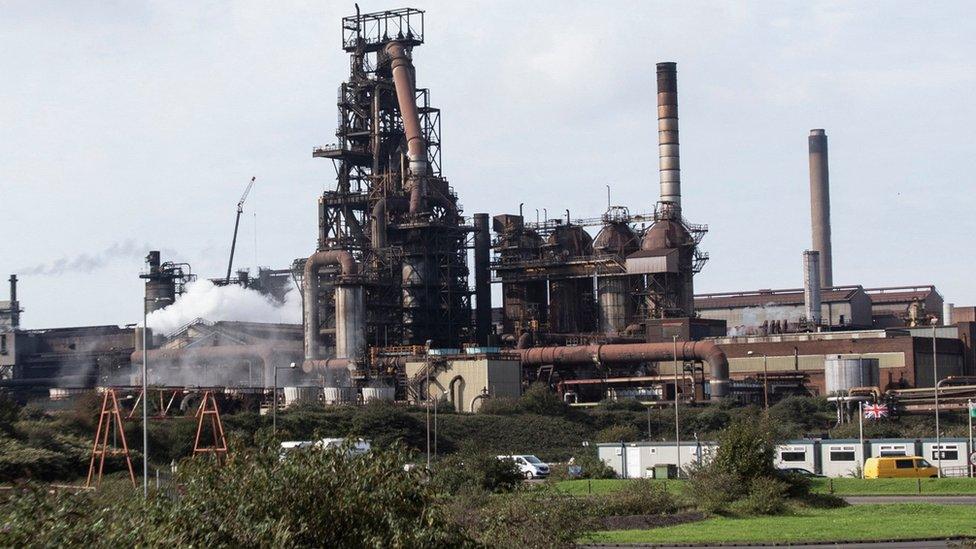
- Published15 September 2023
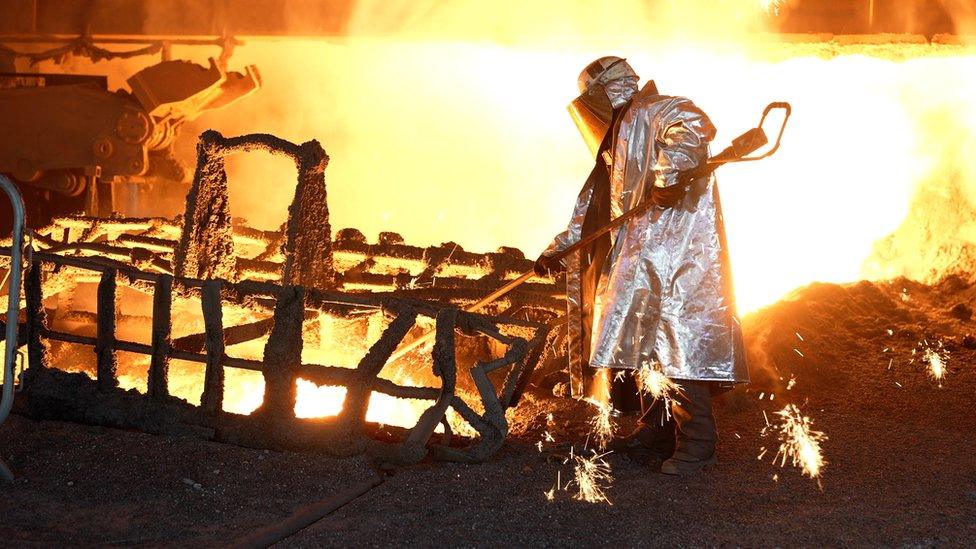
- Published15 September 2023
